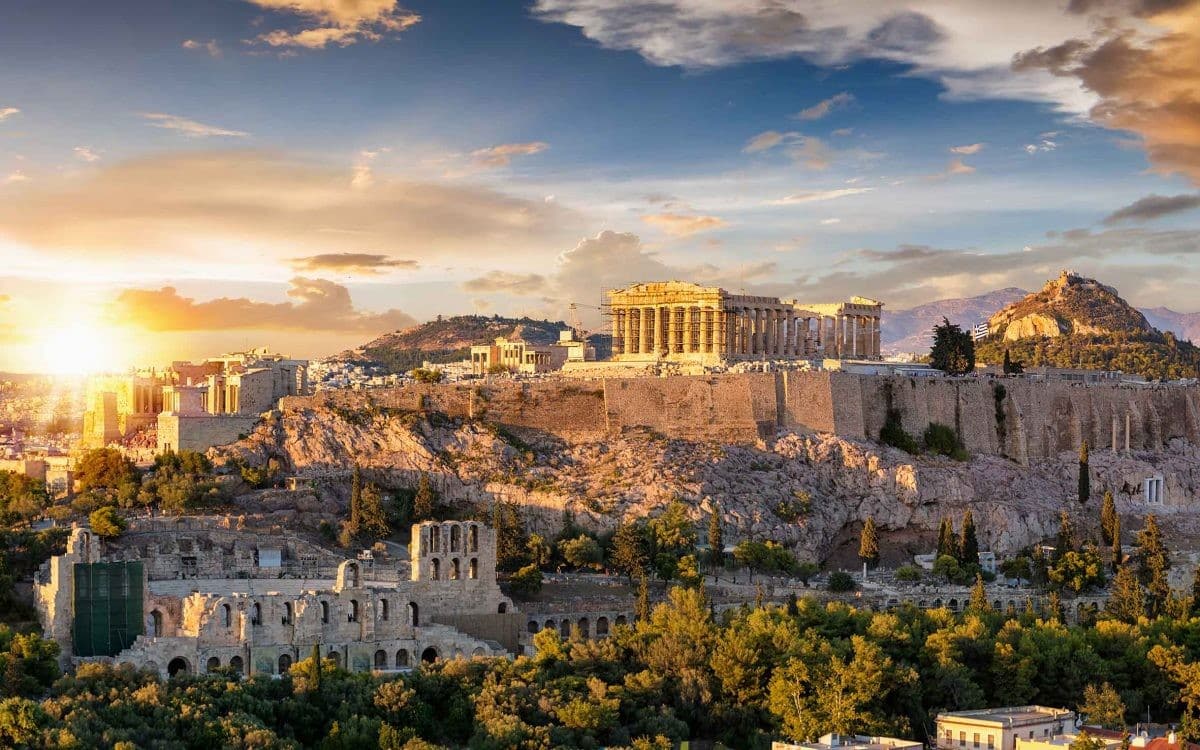Greece is a country in southeastern Europe. It has an area of 13,940 square miles (36,000 sq km). The country is bounded by the Mediterranean Sea to the south and the Aegean Sea to the east and is separated from Albania by a short strip of land. Its capital city is Athens, which was one of the most powerful cities in ancient times.
Greece is known for the world-renowned Acropolis of Athens, one of the most important archaeological sites in the world when it comes to the development of educational systems. Also, their contribution to the Western culture through the invention of democracy, philosophy, and literature attracts millions of tourists every single year.
Greek Mythology

Greek mythology is the set of stories and beliefs in which the ancient Greeks believed. It is about many gods, goddesses, and heroes who lived on Mount Olympus (the highest mountain in Greece). The myths tell us about these people, what they did, how they behaved toward each other, and why they did certain things. For example, Zeus was the king of all gods. He had lightning bolts which he used as weapons when fighting against other gods or Titans. We also learn about other aspects of life, such as marriage customs or funeral rites, because they were important parts of Greek culture then.
The Greek Islands
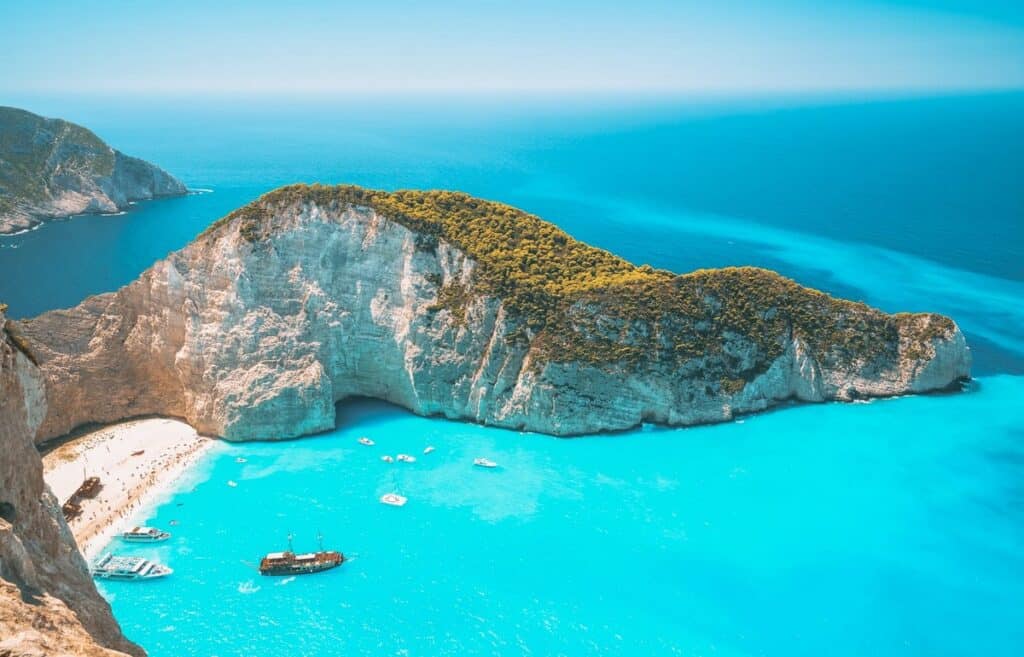
The Greek Islands are a collection of over 6,000 islands. They are known for their pristine beaches, turquoise waters, and beautiful scenery. However, the Greek Islands also have a rich history and culture preserved for thousands of years. In addition to their natural beauty, the Greek Islands have many cultural attractions. You can visit ancient ruins, walk through quaint villages, and tour museums full of history. The food in Greece is also excellent, and you will likely find yourself dining at some of the best European restaurants during your trip.
The Acropolis
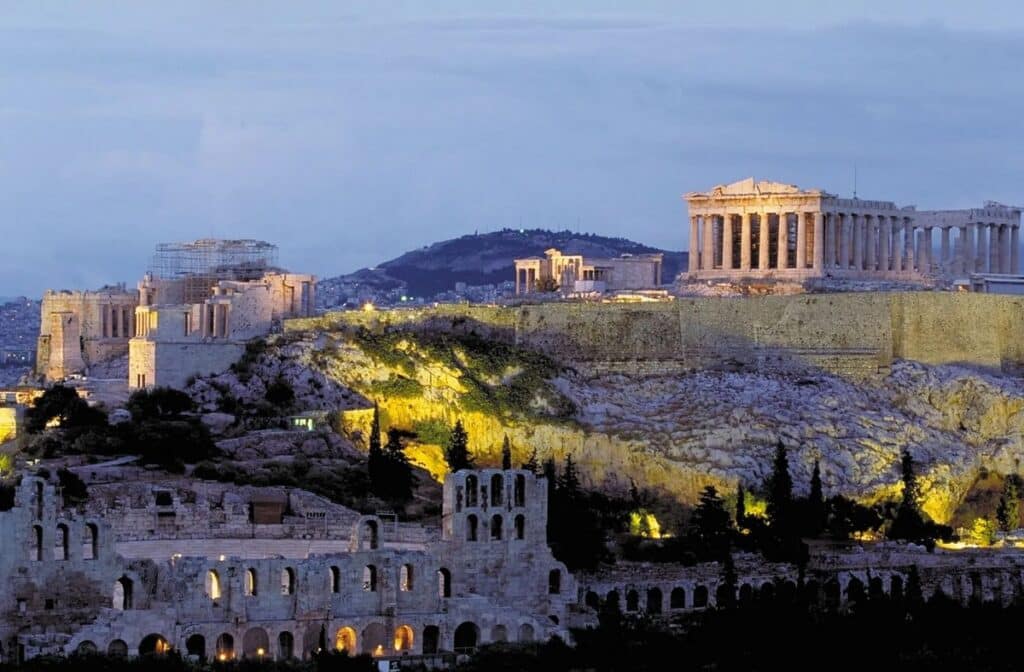
The Acropolis is a hill located in the center of Athens, Greece. It’s the site of many ancient monuments, including the Parthenon, which was built between 447 BC and 432 BC. The hill has been inhabited since at least the Neolithic era, and it is most ancient remains date to the late Mycenaean period (1600–1100 BC). In classical times, the hill was known as Areios Pagos (Greek: Ἄρειος Πάγος), meaning “hill of Ares,” after the deity who was supposed to have lived there. The Acropolis is a natural fortress, bounded on three sides by steep ravines.
Santorini
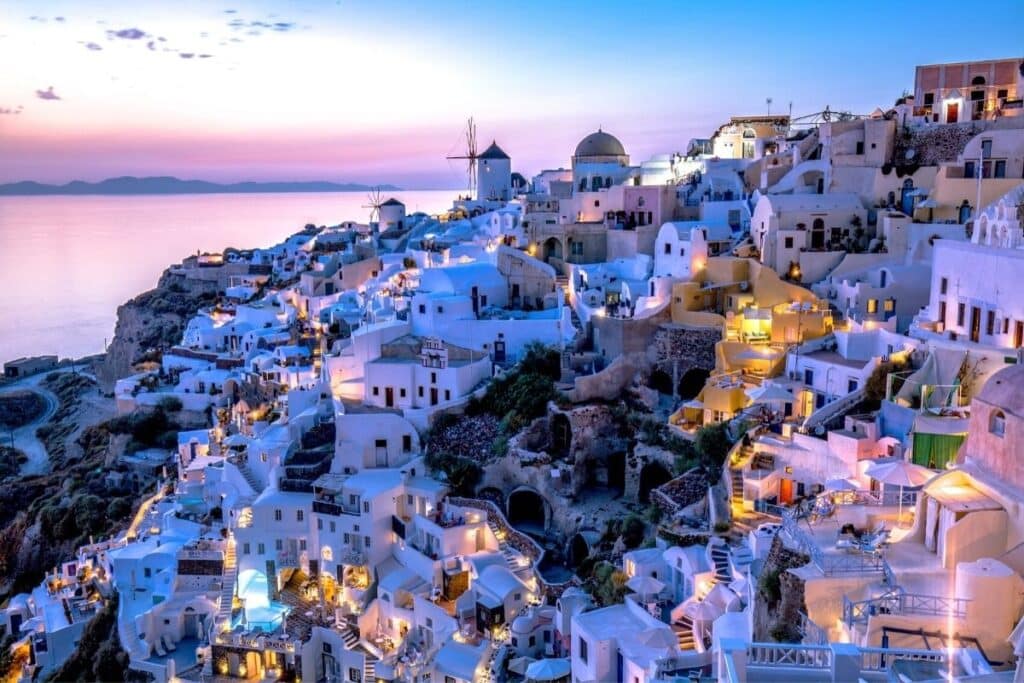
Santorini is an island in the southern Aegean Sea, approximately 200 km southeast of the country’s mainland. It is the center of a Greek tourist industry that attracts millions of visitors annually and provides employment for a significant part of its population. The municipality of Santorini includes the uninhabited islands of Nea Kameni and Palaia Kameni under its administration, while they are not traditionally considered part of Santorini proper. The name Santorini derives from the Ancient Greek Ἀγία Σαντορίνη or Άγιος Σαντόρινης (“Holy Strony”), which refers to the Christian Orthodox monasteries on top of some cliffs overlooking the town center.
Greek Philosophers
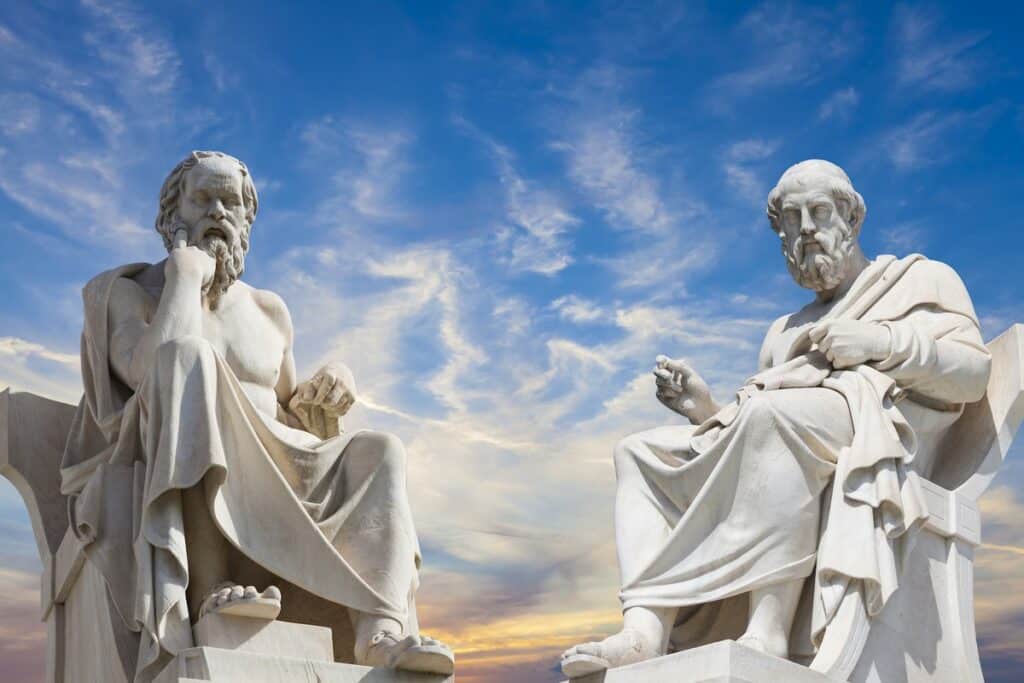
The Greeks are known for many things, including their philosophy and democracy. One philosopher who lived during this period was Plato (427 BC to 347 BC). He was born into a wealthy family but later chose not to attend school so he could focus on studying philosophy instead. He is best known for his theory of Forms which states that what we see around us isn’t necessarily true. Rather, our senses deceive us into thinking something exists when only its representation exists somewhere else outside ourselves (i.e., “the ideal form”).
The Greek Language
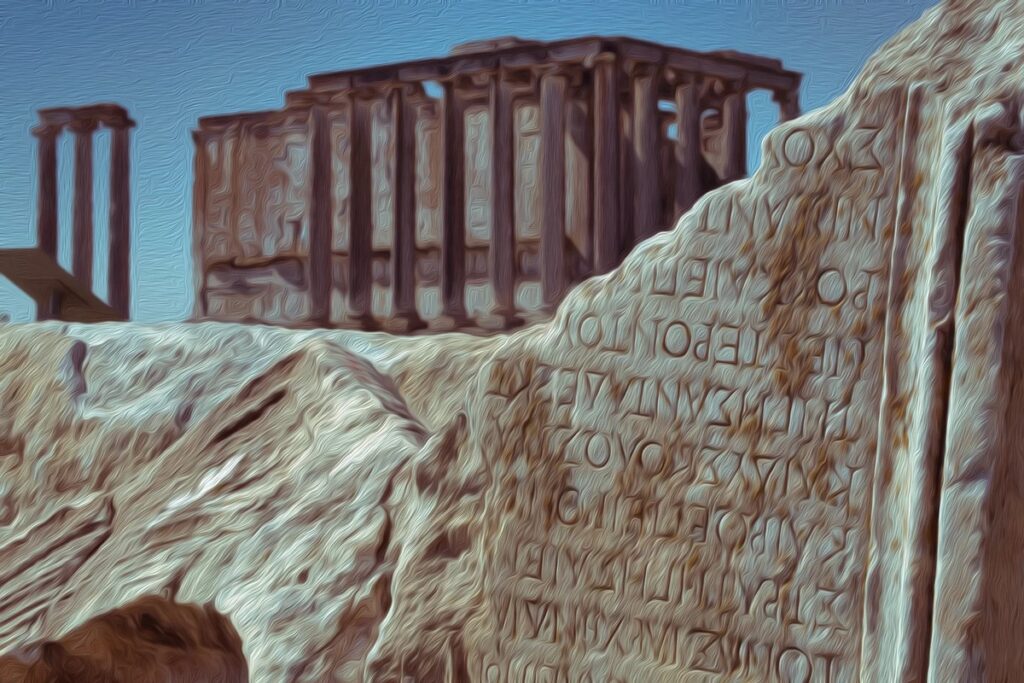
The Greek language is a member of the Indo-European family of languages, which includes English and French. About 13 million people speak it in Greece and Cyprus, and many more have migrated to other countries. The earliest known evidence of written Greek dates back to 1450 BC. However, experts believe it may have been used earlier than that date and possibly even earlier than Linear B (a writing system used on clay tablets). Greek is an inflected language that follows certain grammatical rules for forming words. These rules include adding suffixes or prefixes onto words based on their function within sentences.
Where Democracy Started

Athens is the birthplace of democracy. In ancient Greece, Athens was the first city to have a democracy. This means that all people had equal rights and could participate in government decisions. It’s also where the word “democracy” comes from—it means “rule by the people.” The first democracies were formed in ancient Greece by city-states like Sparta and Athens between 500 BCE and 300 BCE. However, they did not last long because they didn’t have written laws or systems of governance yet (and some people weren’t happy with this new way). But it was still an important step toward modern government.
Olympic Games

The Olympic Games are a series of multi-sport events that occur every four years. The first modern Olympiad was held in 1896, and since then, they have been held every four years except during World War I and II. They started as an amateur competition, and only professionals were allowed to compete in 1924. However, the distinction between amateurs and professionals has since been abolished. Greek athletes are known for their speed, especially during sprinting events such as the 100m dash or long jump. Fast runners from other countries often train at facilities near Athens to mimic the conditions found there.
Olives and Olive Oil
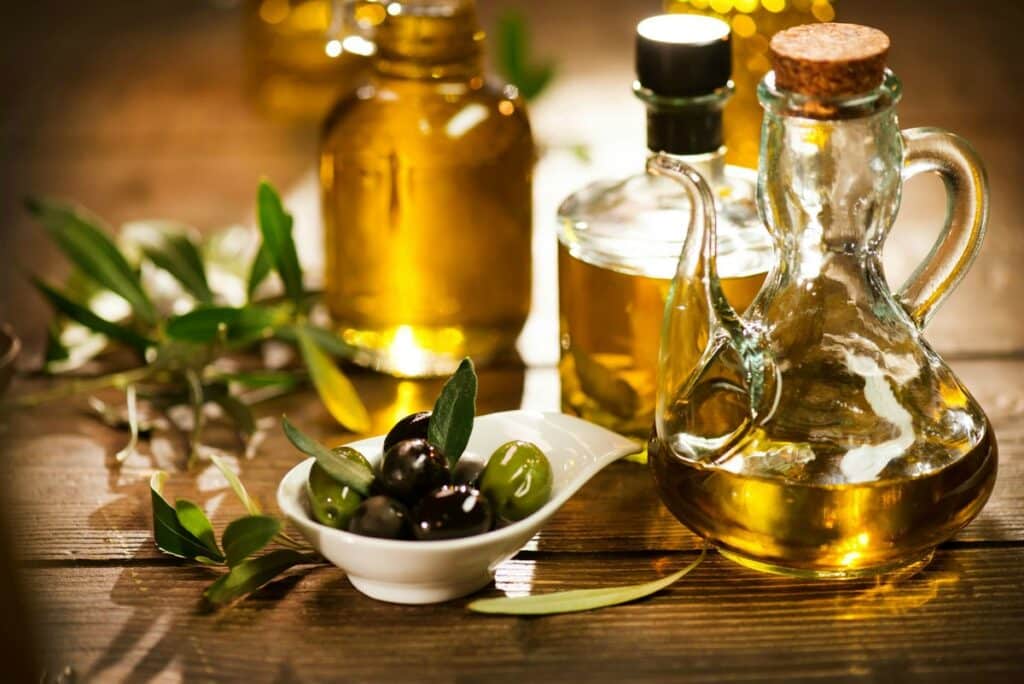
Olives and olive oil are a staple of Greek cuisine, and Greece is the world’s largest producer and exporter of both. The olive tree was first cultivated in ancient Crete by the Minoan people around 3,000 BC. The trees were so important to their culture that they were believed to have been brought from heaven by Zeus. Today, there are more than 5 million hectares (12 million acres) of olive groves throughout Greece, producing about 1 million tons/year worth about $1 billion annually. Also, when you dine in a Greek restaurant, you will likely be offered olive oil for dipping.
Greek Dishes

The cuisine of Greece is a unique and delicious combination of Mediterranean, Middle Eastern, and European influences. Many dishes are made with fresh vegetables, herbs, and meat. Greek salads are very popular in the United States and other countries. They include tomatoes, cucumbers, onions, and feta cheese mixed with olive oil dressing (usually vinegar). Spanakopita is another famous Greek dish made with spinach wrapped up like a turnover pastry filled with feta cheese or ground beef, among other things. The tzatziki sauce is made from yogurt mixed with dill or mint leaves; you can serve this sauce as an appetizer or dip for breadsticks.
Feta Cheese
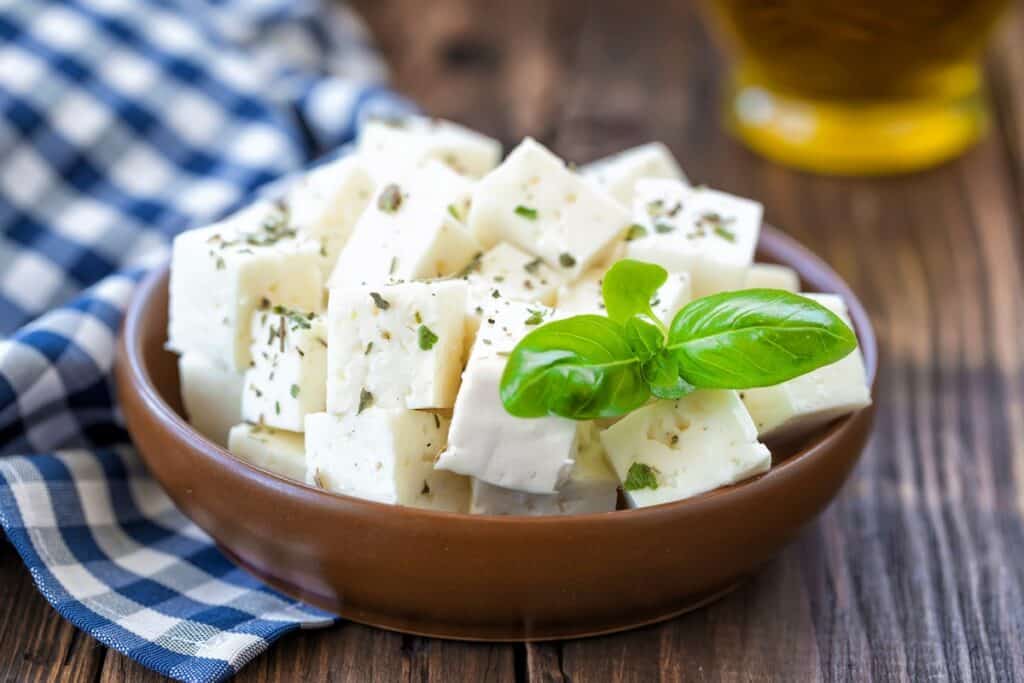
Feta cheese is a salty, brined curd made from either goat’s or sheep’s milk. It originated in Greece and has been produced there for centuries. Feta can be made with whole-milk or low-fat yogurt and goat or sheep’s milk. It’s usually formed into blocks and aged for at least two months, but some varieties are aged for up to one year. The longer they’re aged, the drier they become, and therefore, easier to crumble over salads or other dishes. The health benefits of feta cheese include its high calcium, magnesium, and phosphorus levels.
Unique Coffees
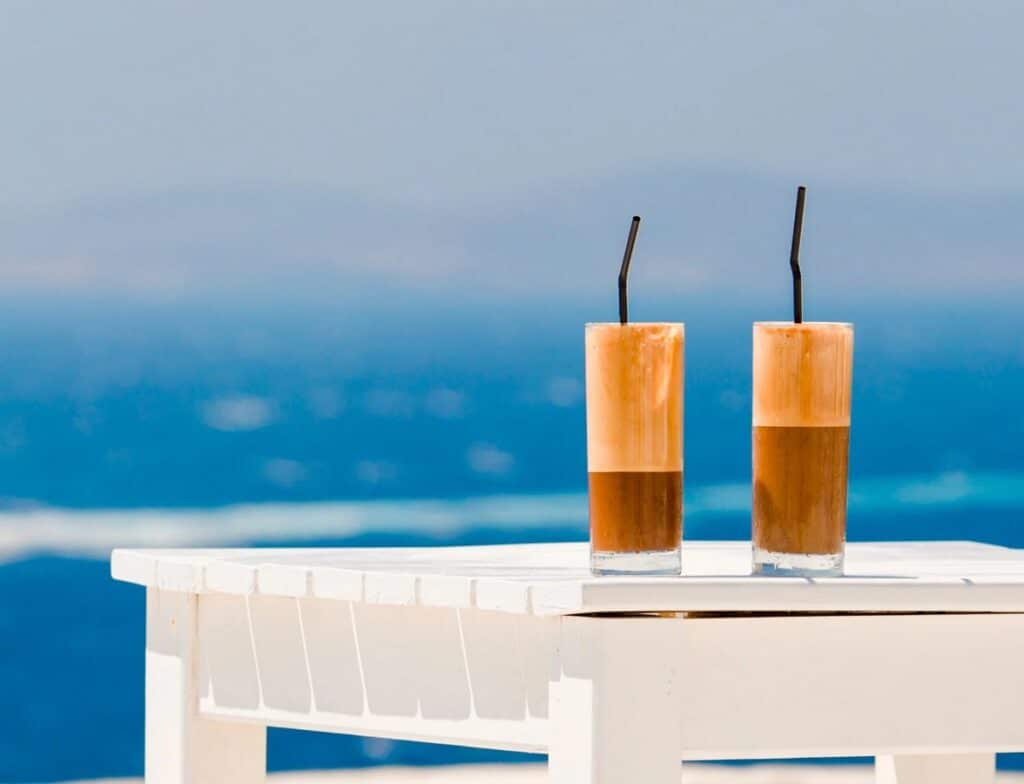
Greek coffee is a unique blend of coffee beans, sugar, and water that is then boiled together. It is served in small cups with a lot of sugar added to them. The result is a very strong and sweet beverage that can be enjoyed as an after-dinner treat or during the day when you need a boost of energy. Greek coffee has been around since the 17th century when Ottoman Turks brought their method for brewing coffee to Greece from Turkey. However, many Greek families still make their blends at home using traditional methods passed down through generations.
Enjoying Ouzo

Ouzo is a Greek liqueur made from distilled grapes, anise, and water. There are two main ways to enjoy this drink when it comes to drinking ouzo. First, you can enjoy a delightful serving of ouzo on the rocks with ice cubes in a shot glass or small glass (you can also add lemon juice if you want). If you prefer a cocktail-like drink, mix it with plain water in equal parts, which tastes like a sweet, licorice-flavored soda. Try adding some ice cubes to this drink for a cold, refreshing treat on a hot summer day.
UNESCO Heritage Sites
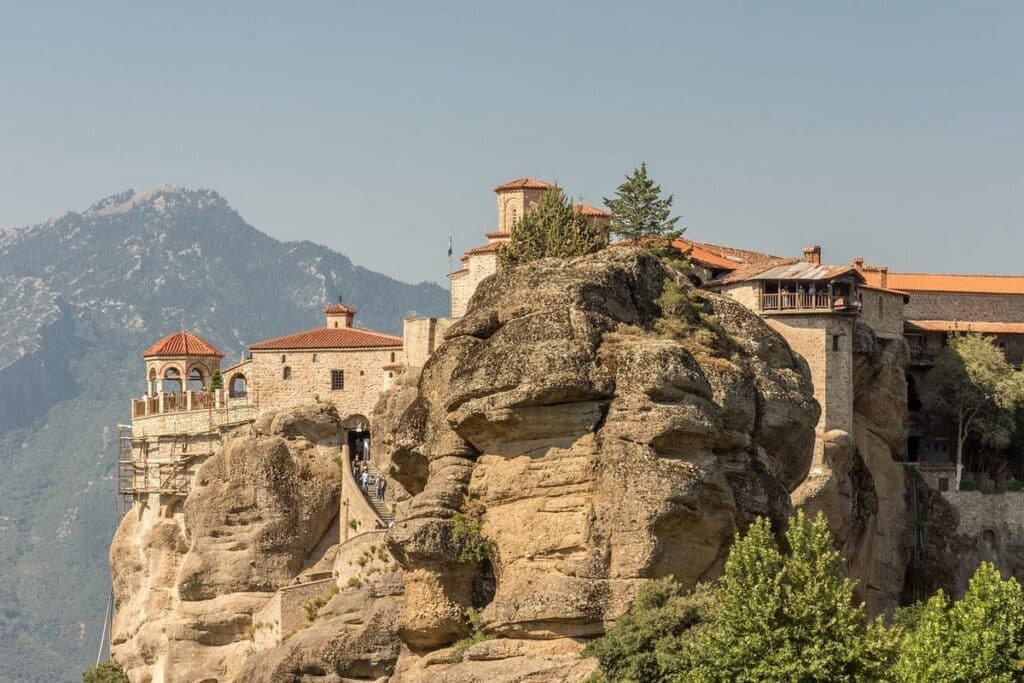
UNESCO World Heritage Sites are places of outstanding cultural or natural importance to the common heritage of humanity. Greece has 16 sites that have been added to this list by UNESCO. The Acropolis in Athens is one example, as previously discussed, as well as Delphi and Olympia. Thessaloniki’s Byzantine Museum is another site worth visiting if you find yourself in northern Greece. It houses Byzantine artworks dating back to between 400 AD and 1500 AD, which were recovered from private collections around Europe during World War II. Check out the Byzantine Museum for an insight into Greek history.
Awe-Inspiring Monasteries
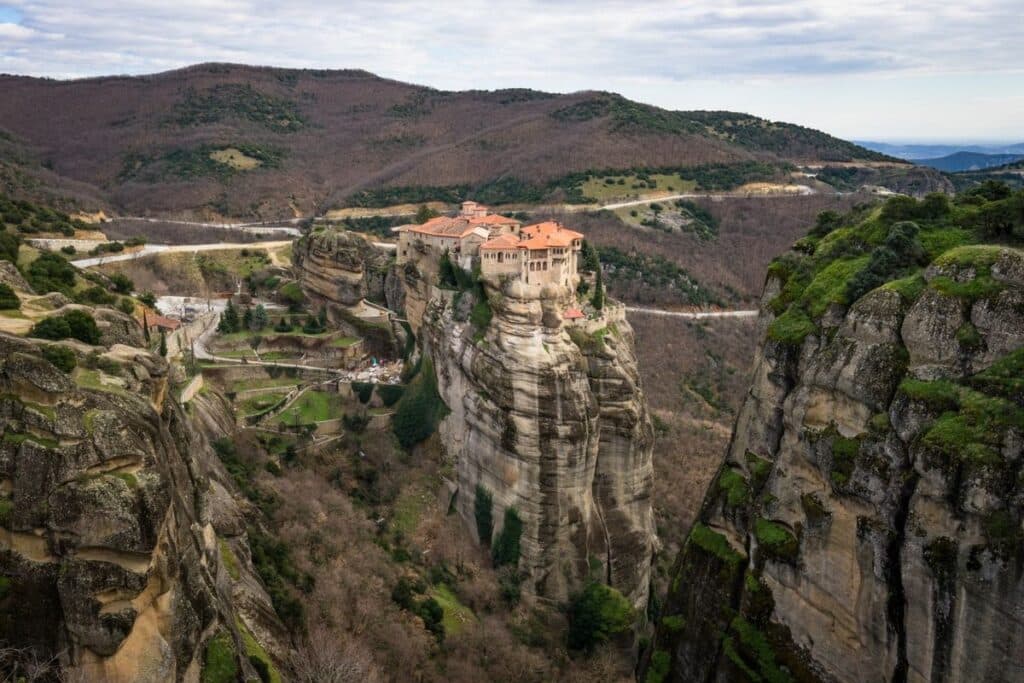
Greece is known for its awe-inspiring monasteries, which are great places to visit, stay and learn about the history of Greece. These buildings were once used as houses of worship or learning centers for monks and nuns, but now they serve as museums that give visitors insight into Greek culture. Monasteries can be found on almost every island in Greece, including Santorini (Thira), Crete (Creta), and Mykonos (Mikonos). However, the most famous monastery in all of Greece is Meteora because it has been used by monks since 1460 AD, making it one of Europe’s oldest active monasteries today.
The Vikos Gorge
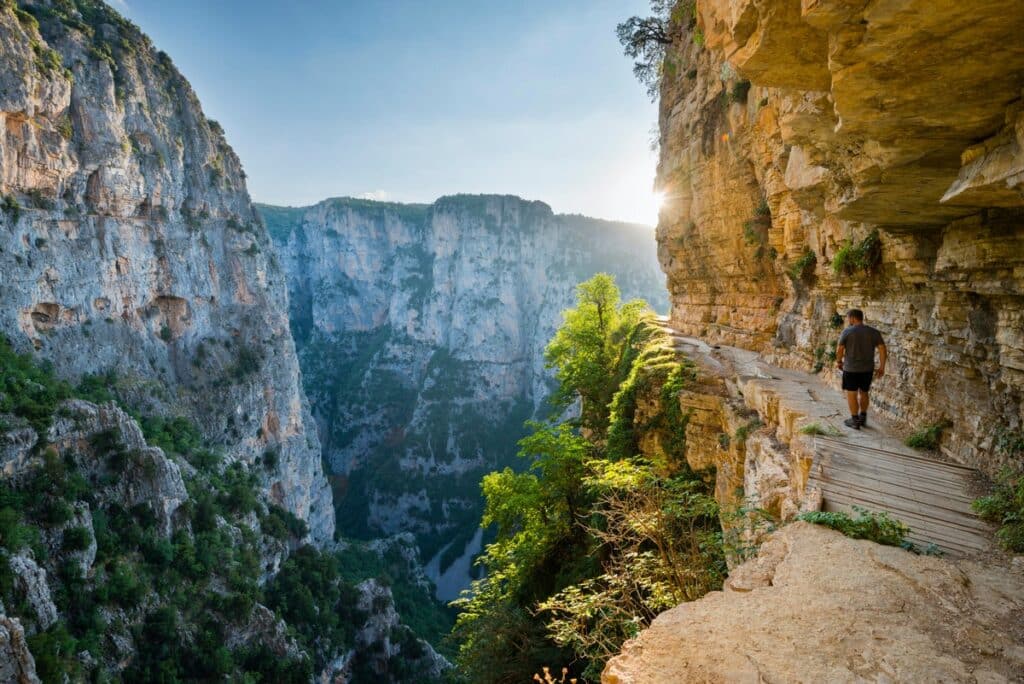
The Vikos Gorge is the deepest in Europe, and it is also the largest canyon in Greece. The gorge is located in the Pindus Mountains in Epirus. This National Park and World Heritage Site has been named one of the most important natural phenomena on Earth by UNESCO because of its unique beauty, biodiversity, and geological importance. To get there, you have to take a boat or hike through this incredible landscape, including cliffs up to one kilometer high. Before you go, you should know that it is forbidden to swim in the gorge because of its dangerous currents and cold water temperatures.
The Filoxenia Virtue
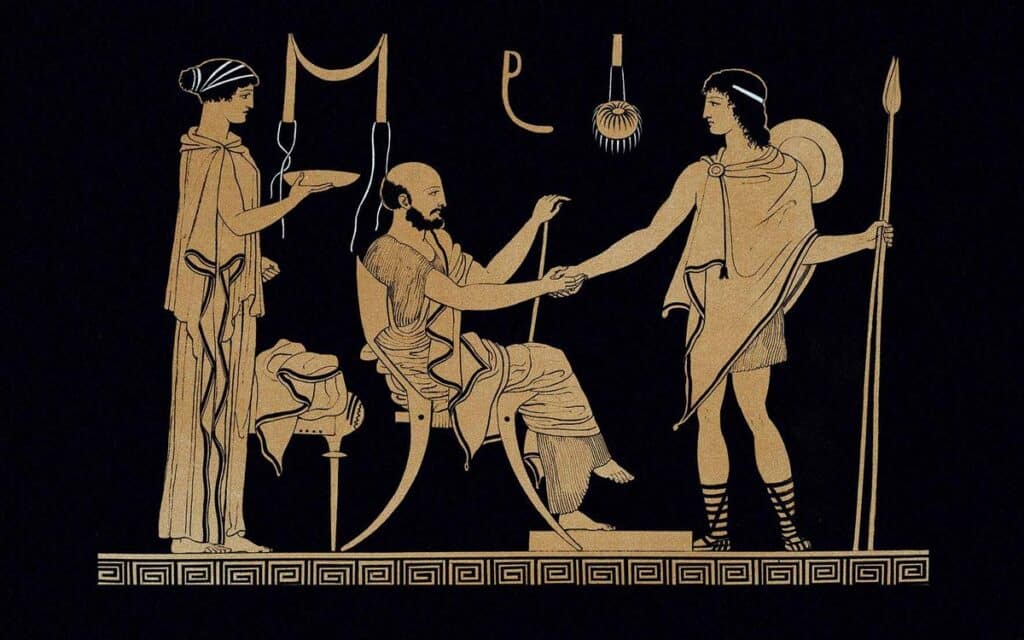
The filoxenia virtue is a famous Greek virtue. It means you are friendly and welcoming to guests, offering them food, drink, and accommodation. This is an important virtue in Greece as it shows your hospitality towards others. If you visit someone’s house or home, you should always bring a small gift such as flowers or sweets for the family. They will warmly welcome you if you do this because they know that you have thought about them before coming over instead of just turning up without any thought behind it.
The Best Staycations
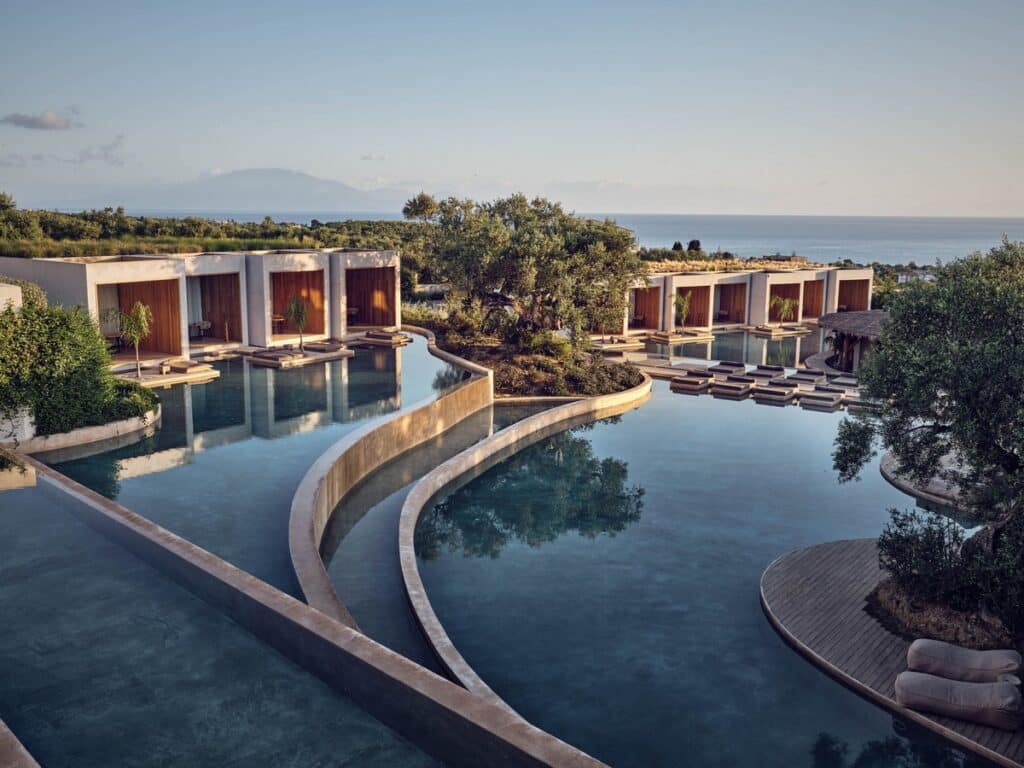
Greece is known for its stunning beaches, delicious food and wine, and beautiful islands. The country has a lot to offer to those who want to explore it on a staycation. If you’re looking for an amazing place to staycation, look no further than Greece! There are many different types of hotels, including boutique hotels or luxury resorts with pools that overlook the ocean (or even both). If this sounds like what you’re looking for, consider its many beautiful islands spread throughout its vast coastline.
